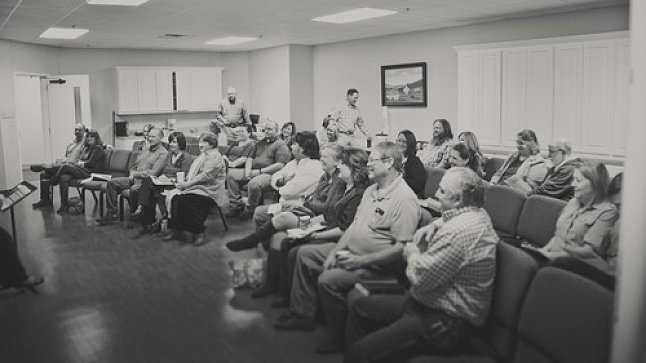Planning Sunday School Lessons With a Purpose

In the movie, Forrest Gump, the title character describes his thought process concerning his decision to take off on a little run.
That day, for no particular reason, I decided to go for a little run. So I ran to the end of the road. And when I got there, I thought maybe I’d run to the end of town. And when I got there, I thought maybe I’d just run across Greenbow County. And I figured, since I run this far, maybe I’d just run across the great state of Alabama. And that’s what I did. I ran clear across Alabama. For no particular reason I just kept going. . .
Some Sunday morning, a Sunday School teacher will begin a lesson. For no particular reason, he will decide to run a little in this direction. When he gets there, he may run to another place. Since he’s gone that far, someone may wave him over all the way across the great state of confusion when, for no particular reason, he will just keep going . . . .
If we are honest, all of us have likely led or participated in Sunday School lessons that could be described by the above paragraph. The good news is that lessons can be planned with purpose. A few intentional strategies will help leaders accomplish this more consistently.
1. Plan to Emphasize One Essential Truth
Most parents have had the experience of asking a child what they learned in Sunday School that morning, only to receive a shrug or “I don’t know” as a response. Unfortunately, if the situation were reversed, many adults might also struggle with answering the question. Effective teachers understand that though a lesson may contain multiple points in an outline, learners should be able to walk away with a clear statement of what they were taught in the session. They don’t need to be able to recite four points, but they should be able to know what essential truth was the main focus of the teaching time. As you plan your lesson, make sure you can identify and state the essential truth that must be made clear.
2. Plan Specifically for Your People Group
Allan Taylor of FBC Woodstock, GA, has said, “The purpose of Sunday School is not to teach the Bible. The purpose of Sunday School is to teach people. You can’t teach the Bible anything!” The Bible is God’s word and our sufficient source for equipping, training, correcting, exhorting, and encouraging people.
However, effective Sunday School teachers know that their focus is not on delivering lessons but on developing learners. We can do this by planning lessons tailored to the people group your class is assigned to reach. God’s truth is universal and unchanging, but young parents of preschoolers will find different applications than those entering into their retirement years. Spend some time considering how the lesson’s essential truth might impact the people group represented in your class. In what unique ways might this truth speak to adults at this particular stage of life?
3. Plan for Learners to Be Involved in the Class
In Teaching to Change Lives, Howard Hendricks identifies the Law of Activity which states: maximum learning is always the result of maximum involvement. He goes on to say that while activity for its own sake is not productive (busyness) meaningful activity makes an impact. Discussion questions, small group work, evaluating case studies, looking up passages of Scripture, listing observations from the passage, and sharing personal examples are just some ways to involve learners in ways that will engage them in the teaching time.
4. Plan with Learner Response in Mind
In Teaching that Transforms, Rick and Shera Melick write that learning is measured by life change. Sharing facts and information is not adequate if learners do not increase in their obedience to God and likeness to Christ. Plan Sunday School lessons with the response of the learner in mind. What type of life change would indicate that the learner learned and applied this truth? Would a behavior change? Would a discipline begin or be strengthened? How would living out this truth impact their homes, work, service in the church, relationships, priorities, decisions, schedules, finances, or worldview? What will be a possible measure that would let a leader know that this truth has been embraced in a learner’s life?
5. Plan Through a Good Routine
Lessons planned on Sunday mornings are difficult to plan with purpose. Although interruptions happen to everyone, developing a good weekly routine will help you be more intentional in your preparation. Consider this outline and adjust it to fit your schedule:
- Monday – Read through the Scripture passage(s) and make personal notes from the text.
- Tuesday – Read the Scripture passages again with any leader material available to you.
- Wednesday – Identify the key essential truth that you want to make sure and emphasize. Make key notes from your Bible Study and leader materials that contribute to this one essential truth.
- Thursday – Think about how this truth applies specifically to your class. Brainstorm a list of discussion questions, learning activities, illustrations, and a final application/desired response.
- Friday – Review and Refine the lesson. Make contact with your class roll, reminding them about group time on Sunday and letting them know the essential truth you will be sharing.
- Saturday – Final review
A weekly routine will break down your preparation into simple, manageable steps. Over time, leaders will find it easier to plan a lesson and even be able to collaborate with others on teaching ideas.
Applying these strategies will help you plan lessons that impact learners.